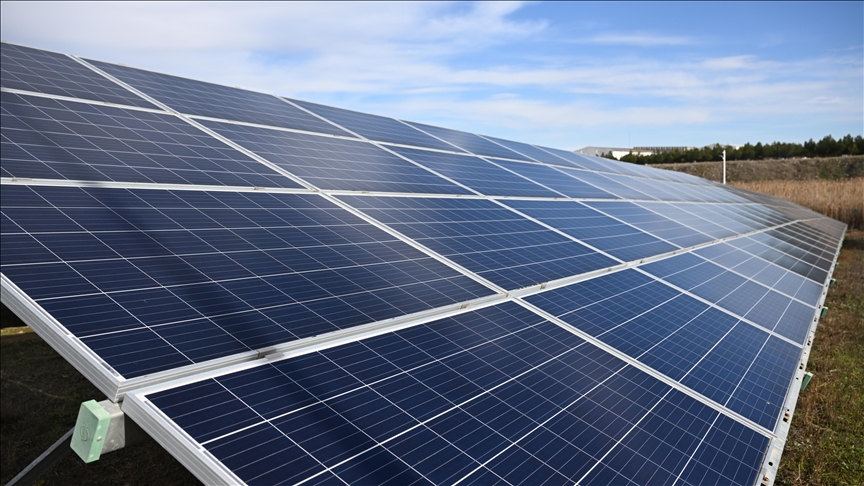

By Anadolu Agency
ANKARA
The collapse of Syria’s 61-year Baath regime marks a new phase for the region, with renewed attention on how Türkiye will shape its energy security policies moving forward.
Experts have highlighted the importance of regional stability and energy geopolitics, stressing Türkiye’s pivotal role in reconstruction efforts in the region.
Kate Dourian, a non-resident fellow at the Arab Gulf States Institute in Washington, told Anadolu that Türkiye could ultimately benefit from the overthrow of the Assad regime, though this largely depends on whether the new interim government in Damascus can stabilize the country.
Since Syria’s key oil and gas fields are outside the control of the central government, Damascus has relied on Iran for fuel supplies. However, Dourian said: “Iran won’t be able to supply oil and its derivatives to Syria after the fall of the Assad regime.”
Last year, Iran supplied Syria with around 80,000 barrels per day (bpd) of oil.
“Türkiye could step in and provide fuel to Syria. With Ankara’s influence with the Hayat Tahrir al-Sham (HTS), which led the anti-regime forces in their march to Damascus, it will likely be involved in the reconstruction effort and have political sway with the new leadership,” Dourian said.
Referring to international data, she noted that before the 2011 uprising, Syria produced around 383,000 barrels of oil and 8.9 million cubic meters of natural gas daily.
However, years of internal turmoil reduced oil output from 171,000 bpd in 2012 to just 93,000 bpd by 2022, leaving Syria heavily dependent on Iran for its energy needs.
Dourian added that hydrocarbons had accounted for about a quarter of Syria’s revenues before the war but suffered greatly when ISIS, and later the PKK/PYD—operating as the “Syrian Democratic Forces” (SDF)—took control of major oil fields.
She also noted that Bashar al-Assad had granted Russia exclusive rights to revive Syria’s oil and gas sectors, but the agreement has stalled due to US sanctions.
“There is an opportunity for Turkish energy companies to step in and revive oil and gas production, which would generate revenues to help with the reconstruction effort,” she said.
“However, this will require a political settlement that is inclusive and a stable government that can negotiate with foreign partners, which will take time.”
Syria’s strategic importance in energy geopolitics
Türkiye-based Middle East researcher Haydar Oruc explained that Syria’s significance in energy geopolitics stems more from its location along key east-west and north-south energy corridors than from its own resources.
Highlighting Syria’s central position, Oruc pointed to projects such as the Arab Natural Gas Pipeline, which aims to transport Egyptian natural gas to Türkiye via Jordan, Lebanon, and Syria, eventually reaching Europe.
He noted that Syria’s strategic position has remained underutilized due to the prolonged civil war, forcing neighboring countries to seek alternative routes.
Opportunities for Türkiye-Syria energy cooperation
Oruc emphasized that Türkiye will continue offering the same support to Syria’s new administration as it has to the Syrian people over the past decade. He said reconstruction efforts would swiftly begin once state institutions are restored.
In this context, Oruc stated, steps will be taken to develop Syria’s energy resources and integrate them into the economy.
“This will open up opportunities for cooperation in exploring new resources, particularly in the extraction of energy in the Eastern Mediterranean,” he said.
He stressed the importance of removing Syria’s energy resources from the control of terrorist organizations. “Once this is accomplished, and if requested by the new Syrian administration, Türkiye stands ready to offer all possible support for Syria’s reconstruction, including the enhancement of existing energy resources and the development of new ones,” Oruc concluded.
We use cookies on our website to give you a better experience, improve performance, and for analytics. For more information, please see our Cookie Policy By clicking “Accept” you agree to our use of cookies.
Read More